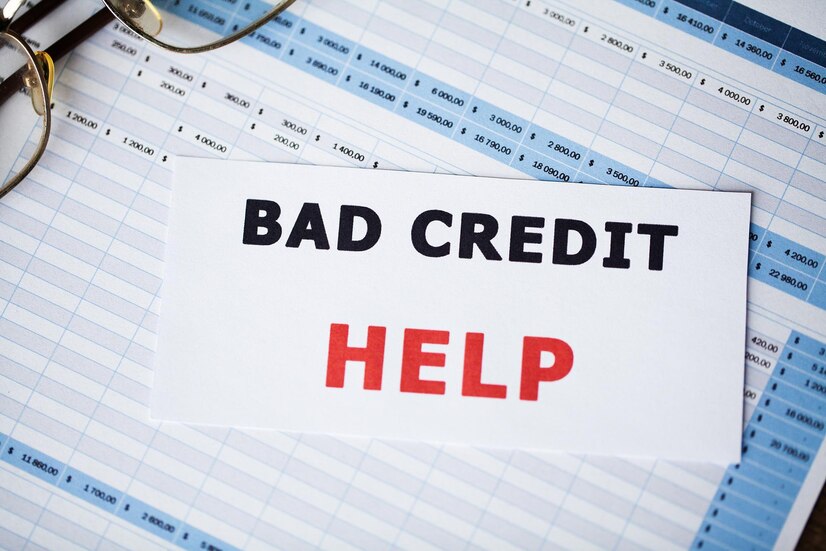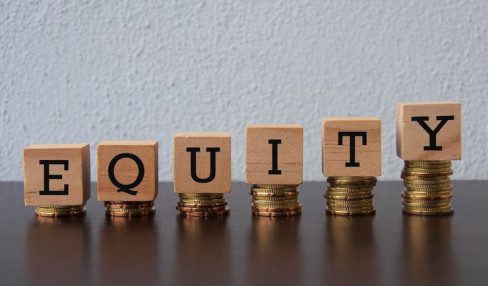What Bad Credit Score Means for Your Business?
5 Mins Read
Published on: 17 November 2023
Last Updated on: 21 January 2025

toc impalement
Like personal credit, business credit significantly affects your company’s financial reliability. A high credit score enables your business to secure better terms and lower interest rates. Business credit scores generally range from 0 to 100, with 0 indicating a high risk and 100 signifying a lower risk.
This article walks you through the implications of negative solvency on your business and how you can tackle it. Remember that your company doesn’t have to struggle with a bad credit score. You can repair it with good financial habits. But first, understand what having poor credit means for your business.
What Is The Meaning Of Bad Credit History?

Every business aims to reach a score as close to 100. But numerous factors like bankruptcies, late or missed payments, or high credit utilization ratio can cause business owners to have a less than optimal credit score. Hence, besides incurring penalty fees, not paying your bills on time can result in bad credit.
In simple terms, a poor credit history entails the inability of a borrower to maintain their past credit repayments. If you have such a credit history, the information passes directly onto the financial industries, and you can no longer apply for loans. Or at least it will take a lot of time for approval.
Implications of Bad Credit on Your Business
Banks and other lenders use your business score to evaluate how likely or capable you are of paying them back in full and promptly. Knowing how bad credit can negatively affect your business is essential. Below are possible implications of poor business credit scores.
Denied Loan Applications

These scores show your creditworthiness to lenders. Lenders will likely perceive you as a risky borrower when you have a low business score. Since adverse credit signifies that you’re struggling to manage your finances, lenders will be more cautious in approving your loan. There’s a higher chance that your application for a business loan will be rejected.
Higher Interest Rates
Some lenders have lower credit score requirements. They extend business loans to entrepreneurs even with bad credit. While poor credit doesn’t automatically ban you from obtaining a business loan, the overall costs are more expensive. Still, you can shop around multiple lenders to secure the most reasonable rate for your business.
Increased Insurance Premiums

Most insurance companies also use information to verify the risk of your business filing a claim when determining insurance rates. As a result, you may pay higher insurance premiums if your company has a bad credit score. The upside is that not all insurers use credit history to determine premiums so that you can look over different options.
Bad Reputation
One of the most far-reaching and permanent implications of bad credit is the loss of reputation. This is one of the most prominent implications of bad credit, as it affects many things. As a business entity, you will struggle to get your loans approved or get business funds since business funds for bad credit are a difficult task to secure. Therefore, it can increasingly affect the overall business essence.
Several Ways to Address A Bad Credit Score
Hope is not all lost when your business has bad credit. It’s crucial to note that there’s no instant fix to restore your score. The good news is that you can take the following steps to hand adversive credit or improve your business’s creditworthiness.
Pay Your Suppliers and Lenders on Time

Your payment history is the most critical component of your business credit score. It demonstrates whether you have a history of repaying your financial obligations. Hence, most lenders consider your past repayment behavior to determine your capacity to pay off new loans or debts.
That’s why making consistent and on-time payments is essential to improving or maintaining a good credit score. It also means that paying your suppliers and lenders on time can boost a significant portion of your score. If you have credit card debt, you can push your score skyward by paying it off or above the required minimum.
Maintain a Low Credit Utilization Ratio
Another critical factor in your business credit score is the utilization ratio. It represents the sum of all your balances divided by the total credit available to your business. You can significantly improve your business score by maintaining a low credit utilization ratio. That’s possible by increasing your credit limit and paying your balance early.
Utilize Business Assets as Collateral
It might take time to restore your credit. Suppose you need quick access to financing. You’re probably wondering how to obtain funding when you have bad credit. Financing options like title loans bad credit allow you to utilize business assets as collateral.
So, even when your business has poor credit, title loans allow you to borrow money as long as you secure the loan with your vehicle’s title. But before choosing this alternative, ensure that you understand the loan terms and have a concrete plan to repay the amount you borrow. You would not risk losing your vehicle in case of a default.
Stay on Top of Your Business Finances With a Stellar Credit

Access to financing is critical for every business’s growth and success. Whether it involves seeking more sales or maximizing profits, companies of every size need capital to expand and thrive. However, stellar credit plays a significant role in qualifying for various funding options.
Thus, take your business credit score more seriously and stay on top of your company’s financial health. Don’t hesitate to seek guidance from a financial professional. Although it’s possible to lousy bad cred independently own, a professional can help you implement uneconomical practices.
If you liked this piece of content, then do let us know. Your feedback means a lot to us as it will help us cater to your curiosity more precisely. Therefore, leave feedback and keep following us for more.
Read Also:


















Comments Are Closed For This Article